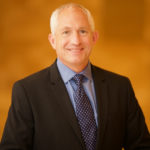Best Practices for Virtual Trials, Hearings in the Age of COVID by Richard Fechter, JD, CAMS, CFE
COVID-19 social distancing has upended the logistical functions of nearly all aspects of American governance, including court systems. With courthouses completely or partially shuttered, the courts are rapidly expanding their reliance on remote teleconferencing capabilities and stepping-up their use of technology to keep dockets moving.
Members of our firm recently attended a three-day hearing in Federal Court (Southern District of Texas, Houston Division), where we observed first-hand some of the efficiencies and challenges that arise when litigants, witnesses, judges and attorneys log in to hearings remotely and communicate through a row of screens. After all, technology can and will fail. Calls may drop, video may be choppy, and audio may be garbled.
Based on our experience and various discussions with colleagues who have also attended virtual hearings and trials, we have developed the following best practices that we believe will be helpful to attorneys and their witnesses attending virtual court.
Backups / Redundancy
- Limit any risk of technological glitches by reaching agreements with opposing counsel on procedures to submit and exchange information and materials well in advance of scheduled hearings or trials.
- Make sure your internet connection is solid with high bandwidth, but do not assume that every participant has fast and reliable internet connections. Before court, set up and test a “hotspot” backup for all parties, including attorneys and witnesses, in case an internet connection fails.
- Do a test run of logging into virtual court the day before a scheduled hearing to ensure that all audio and visual connections are functioning properly and that you can access and present all exhibits.
- Choose the “dial-in number” option for audio during your videoconference rather than “internet/computer audio”, which uses the same telecommunications path as the video — if one fails, the other will too.
- Take the time to the settings of your videoconference app so that it visually highlights the current speaker. You can also adjust the settings to see a gallery of participants, if that is your preference.
Demonstratives and Exhibits
- Clearly identify any documents exchanged with the court and other participants using easily identifiable filenames (e.g., “DX-1_Document_Name.pdf”), and create a separate index to help guide participants to the correct document.
- Label each page within a document with legible page numbers or Bates numbered documents. Page numbers in slide decks are often neglected and may not be clearly legible or in large enough font for everyone to read.
- Be much more intentional than you typically would when identifying each slide or document and page number you are discussing at any given time. You do not want to drone on for several minutes, only to have the court interrupt and ask you to clarify which materials you were referencing.
- E-mail courtesy copies of all documents to opposing counsel before arguments begin. After the hearing, follow up with the court and opposing counsel with any other materials that you may have presented on the fly.
- Make sure you have professionals with IT and demonstrative exhibit expertise in attendance and available during your presentation in case something goes wrong and needs to be corrected.
Things to Say or Do Specific to a Remote Hearing
- Ask all participants, including the court reporter, to clearly identify themselves before going on the record. This can help to alleviate one of the most challenging parts of remote hearings: the loss of strong nonverbal cues that help mediate the conversation between the judge, the advocates and the witnesses.
- Speak very slowly and deliberately and always identify yourself to the court reporter each time you take the virtual podium. Remember, a fast argument is a lost argument.
Witnesses
Witnesses can present unique challenges to virtual meetings, especially when they are asked to join a conference mid-hearing rather than at the beginning. With this in mind, the calling attorney should coordinate closely with witnesses in advance of testimony to ensure proper operation of video and audio access links.
- Take the time before a hearing begins to test witnesses’ connections, correct any problems and ensure witnesses have accurate dial-in information and detailed instructions for waiting on standby wherever they are.
- Ensure witnesses can be heard by the court before they begin testimony by obtaining affirmations from the judge and court reporter.
- Never assume that the other video conference participants can hear you just because you can hear them. The audio received by the court in the courtroom is different than what is heard online.
- Remind witnesses to take their instructions from the court. If they are asked to speak louder, they should do so even if feels like they are yelling. It is far better for witnesses to apologize to their family members in the next room than it is for the court to miss their testimony.
Remote advocacy is an imperfect alternative to traditional, in-person hearings. The processes will be frustrating. It will be unnatural. Surprise visits from children and dogs will happen as participants call in from their homes. Do not fret. This is the new normal. Laugh it off and move on. As always, good preparation is key to ensuring success in the virtual courtroom and should remain a guiding principle for parties engaged in litigation.
About the Author: Richard S. Fechter, CFE, JD, CAMS, is an associate director with Berkowitz Pollack Brant’s Forensic and Advisory Services practice, where he conducts forensic accounting investigations and provides expert analysis on the economic, finance, and accounting issues pertaining to economic damages and other business matters in complex commercial disputes. He can be reached at the CPA firm’s Miami office at (305) 379-7000 or info@bpbcpa.com.
← Previous
